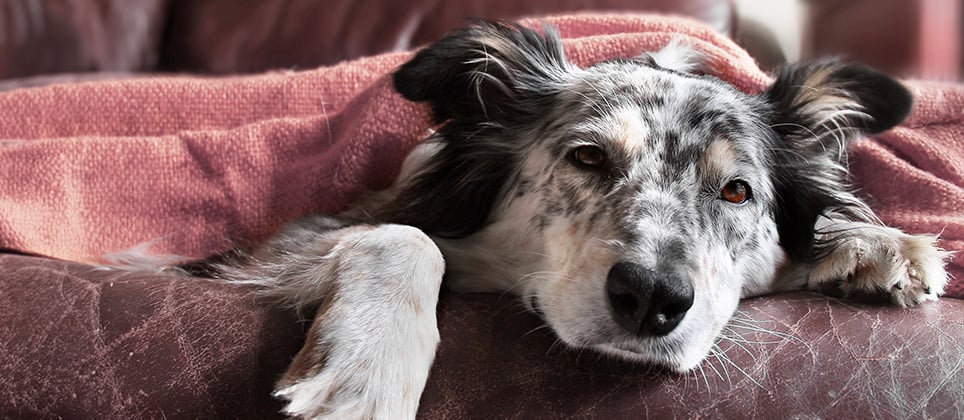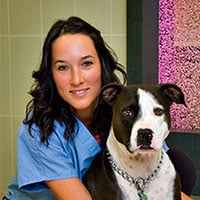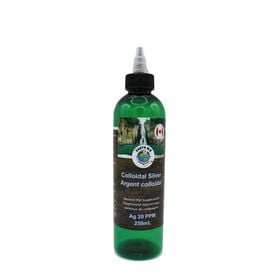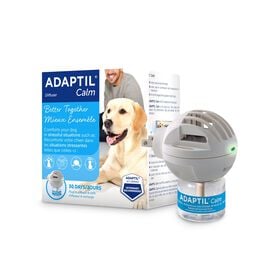That's right! Your dog can get colds, too, even if they haven't been to a kennel recently! All it takes is a walk in the park where you come across another sick dog or a visit to a friend's house who has a dog with a cold for yours to catch one, too.
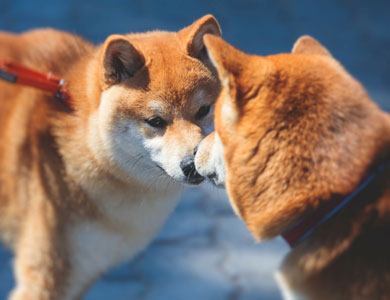
Close contact between two dogs can lead to contamination via aerosols (dog breathing nose-to-nose with another), infected saliva or contaminated surfaces or objects. That's why prevention is key!
What is kennel cough?
Tracheobronchitis, which is commonly referred to as kennel cough, is a respiratory infection. This condition is caused by a combination of viruses and bacteria that infect the dog's trachea and bronchi, leading to inflammation and irritation. The viruses responsible for kennel cough include the canine parainfluenza virus and the canine coronavirus, while the bacteria are usually Bordetella bronchiseptica. When a dog is infected with kennel cough, it experiences inflammation in its upper respiratory system, resulting in flu-like symptoms.
Symptoms to watch out for
If you observe your dog coughing and sneezing frequently, accompanied by discharge from their nose and eyes, they may be showing signs of kennel cough. In addition to these respiratory symptoms, your dog may also experience loss of appetite and energy, appearing tired and inactive. However, there is no need to panic as most dogs can recover from this on their own without any treatment. Although the symptoms may last for a few days or weeks, it is crucial to provide them with proper care and attention to help speed up recovery. Remember to keep a close eye on your furry friend and give them lots of love and comfort during this time.
Taking care of your dog
It's crucial to ensure that your dog is eating and drinking enough. Monitor their health and provide care at home.

- Check their temperature every day. Normal temperature is between 38 and 39.2 °C.
- Contact your vet right away if your pet has a fever.
- To ensure your dog eats, you can stimulate their appetite by offering them canned or appetizing food.
- Nasal discharge can obstruct nostrils and affect smell. Some dogs will also experience a sore throat. Canned food has a stronger aroma and is easy to swallow, encouraging your dog to eat. You can also add a drop of water to help keep them hydrated.
- Make sure your dog gets enough rest so they can conserve energy for fighting off coughs associated with excitement.
- Keep your recovering dog away from other dogs to prevent the spread of disease. Avoid contact with other dogs for a few weeks after recovery to ensure they won't get sick again or spread the illness.
When should you go to the vet?
As the disease progresses, your dog may begin to display a range of distressing symptoms, including fever, weight loss, listlessness, and intense coughing that could lead to vomiting. In severe cases, the infection may progress to pneumonia or bronchopneumonia, where a barrage of viruses and bacteria inflame the trachea before descending into the bronchial tubes, damaging the lungs. At this stage, your pet may struggle to breathe, and it's vital that you seek prompt veterinary care to ensure they receive the necessary treatment.
Antibiotics, cough medicine, and anti-inflammatories are often prescribed. However, in severe cases, hospitalization may be required to provide intravenous fluids for rehydration and oxygen therapy to aid their breathing.
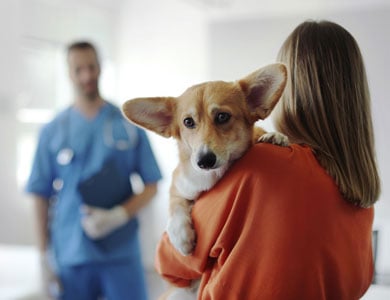
Prevention through vaccines
Vaccines are readily available for preventing respiratory disease in dogs that are caused by specific virus strains associated with infectious tracheobronchitis. The vaccines work by stimulating the dog's immune system to produce antibodies that can fight against the targeted virus strains.
We strongly recommend that your dog, in addition to their primary vaccines, also gets the Bordetella bronchiseptica vaccine. This vaccine's protection is not long-lasting, so getting a shot every six months is advisable if your dog is at risk. Your vet will be able to recommend the best option for your pet and your lifestyle.
It is important to note that the vaccines do not provide protection against all the virus strains that can cause infectious tracheobronchitis. Still, they can significantly reduce the illness's severity and duration. Therefore, it is recommended to consult with a veterinarian to determine the best vaccination strategy for your dog based on its individual risk factors and overall health status.
A mysterious illness
Recently, a particularly aggressive form of respiratory disease has been seen in dogs, mainly in the United States, but a few cases are already suspected in Quebec. Dogs present respiratory problems that can progress rapidly in some individuals. It is, therefore, essential to be more vigilant than usual. If your dog has respiratory symptoms or has been in contact with an animal that does, avoid all dog gatherings (competitions, obedience classes, agility practice, etc.). Respiratory illnesses spread rapidly in these indoor group activities. Do not delay in contacting your vet. If your pet's general condition is affected, it's best to consult your veterinarian immediately to act early and avoid complications from this virulent form of the disease.
Dr Valérie Trudel, m.v.
